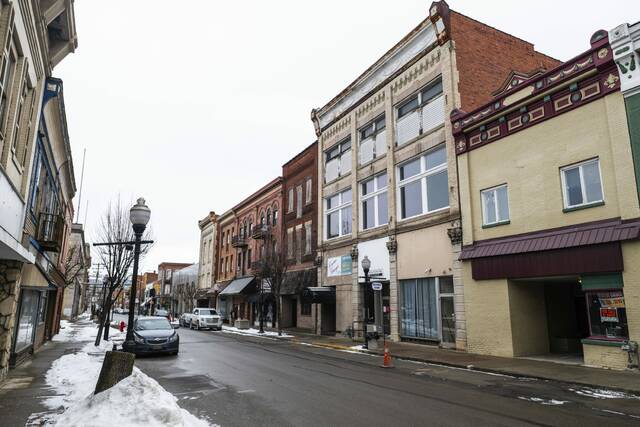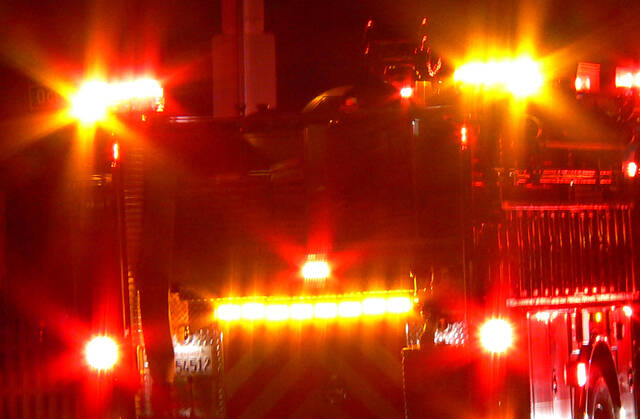Local agencies are encouraging people not to panic as the coronavirus spreads, with over 100 confirmed U.S. cases and nine fatalities so far.
The virus, which has infected more than 92,000 people and killed over 3,000 in places like China, South Korea, Japan, Italy and Iran, has started to spread through the United States, including California, Oregon, New York, Washington, Rhode Island, Florida and, most recently, North Carolina.
While there are no confirmed cases in Pennsylvania so far, health officials warn the spread is inevitable and have encouraged residents and health care facilities to prepare.
The American Red Cross suggests putting together a kit that includes food and household supplies, such as laundry detergent, bathroom items and diapers for those with small children. A 30-day supply of prescription medications along with pain relievers, stomach remedies, cough and cold medicines and vitamins should be included.
Several agencies also suggest people take similar precautions to other illnesses by washing your hands with soap and hot water for at least 20 seconds and covering your mouth when you sneeze or cough.
“This is not a type of virus that is difficult to destroy when it’s on the hand or on inanimate objects,” said Marc Itskowitz, an internal medical physician at Allegheny Health Network. He noted that the type of soap used for washing hands is not important. If hand washing isn’t an option, alcohol-based gel sanitizers are the best alternatives.
Stocking up
At several local stores, including Walmart and Target in Hempfield, supplies of water jugs, hand soap and laundry detergent appeared to be dwindling this week while medications like Tylenol and Advil were picked through. Shelves once housing Clorox wipes and bottles of bleach sat empty at both stores.
Employees at the Walmart in Harrison confirmed that customers have been flocking to buy hygiene products like hand sanitizer and disinfecting wipes. One employee was restocking vitamin C, he said, because the shelves had been completely wiped out.
Similarly, the Rite Aid in Harrison saw an increase in panicked customers—more than any cold and flu season of the past. The store completely sold out of face masks.
A Rite Aid location in Greensburg was down to a few travel-size bottles of hand sanitizer with the space normally filled with larger bottles sitting empty.
A Target corporate spokesman declined to comment.
Officials at Rite Aid and Walmart did not immediately respond to a request for comment.
Sarah Collins, 35, of Hempfield, was shopping Monday at Target, buying paper products and cleaning supplies.
“I’m in health care and I’m concerned for people who do have underlying health issues or maybe are compromised about what it could mean for them,” she said of the coronavirus. “You just hope for the best for everyone and prepare yourself as well.”
Kerri Andrews, 52, of Hempfield, who was also at Target, added that she was out shopping for cleaning supplies.
“Just to be on the safe side,” she said. “I don’t want to be without it if something does happen.”
For families, the Centers for Disease Control and Prevention suggests creating a plan and identifying those who may need additional help based on health needs, creating an emergency contact list, knowing the community’s aid organizations and getting to know neighbors.
While some stores, including the Greensburgh Rite Aid location, were out of surgical masks, public health officials recommend that people not buy those items. The move comes after the demand for face masks surged in early February as the virus spread across China, The New York Times reported.
In a February, the U.S. Surgeon General tweeted, “Seriously people — STOP BUYING MASKS! They are NOT effective in preventing general public from catching #Coronavirus, but if health care providers can’t get them to care for sick patients, it puts them and our communities at risk!”
Seriously people- STOP BUYING MASKS!
— U.S. Surgeon General (@Surgeon_General) February 29, 2020
They are NOT effective in preventing general public from catching #Coronavirus, but if healthcare providers can’t get them to care for sick patients, it puts them and our communities at risk!
https://t.co/UxZRwxxKL9
According to the CDC, a mask or respirator can be worn by an infected person to stop the spread of the virus. For those who are not infected, however, a mask is not recommended.
If you get infected
If someone contracts COVID-19 or has traveled to an area with a high number of cases, they could be quarantined up to 14 days — the number of days flu-like symptoms, including shortness of breath, fever and a cough, tend to persist, according to the Pennsylvania Department of Health.
According to the Red Cross, people also should avoid close contact with those who are sick; stay at home when they’re sick; avoid touching their eyes, nose and mouth and disinfect commonly touched surfaces around the home or workplace, including counters and bathrooms.
Current understanding is #COVID19 spreads mostly from person to person through respiratory droplets produced when a person coughs or sneezes, similar to how flu spreads. Learn more at https://t.co/VvIzx7O3mM pic.twitter.com/MiHHHyCfTa
— CDC (@CDCgov) March 1, 2020
“Most patients will have no symptoms or mild flu-like symptoms. We have good medical care here in this country, so for those patients that do need more advanced care, we should be able to provide that,” Itskowitz said, noting that people should still get a seasonal flu shot, which “is a much greater risk.”
The CDC recommends having a separate bedroom and bathroom if someone in the family is infected. Family members should avoid sharing personal items like food and drinks and the rooms occupied by the sick person should be cleaned regularly with a detergent and water prior to a disinfectant.
The Center for Biocide Chemistries has a list of EPA-approved disinfectants including Clorox, Purell, Lysol and multi-purpose disinfectant wipes. A full list can be found on the CBC’s website, americanchemistry.com, and searching for coronavirus.
If a child becomes sick, CDC officials recommend notifying their school or daycare center.
“I think we need to continue to monitor the situation and gather more data,” Itskowitz said. “I think most public health experts are not surprised there is the emergence of a new virus. Most people said it’s only a matter of time. We just need to collect the data right now.”
Staff writer Teghan Simonton contributed to this report.








